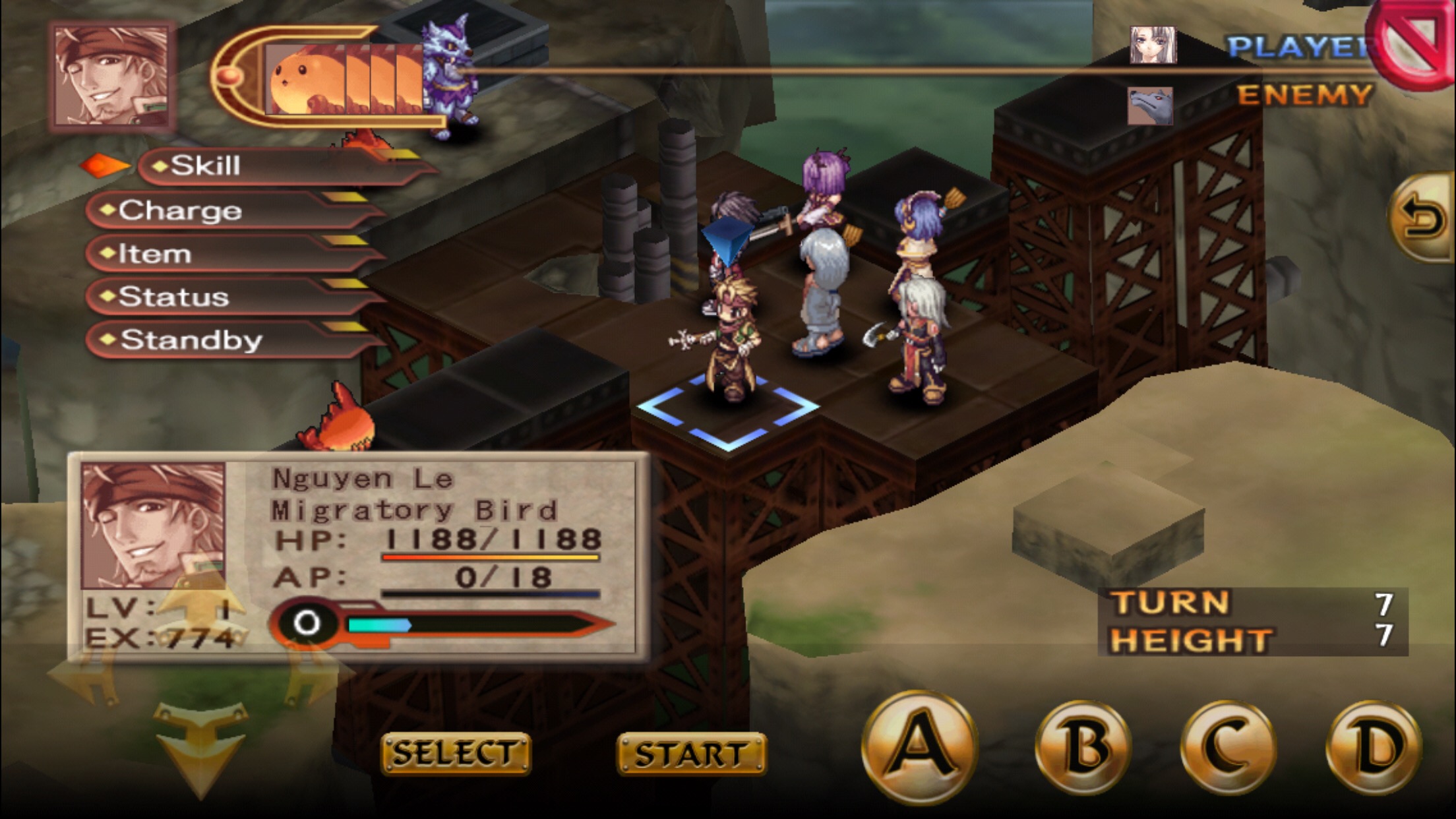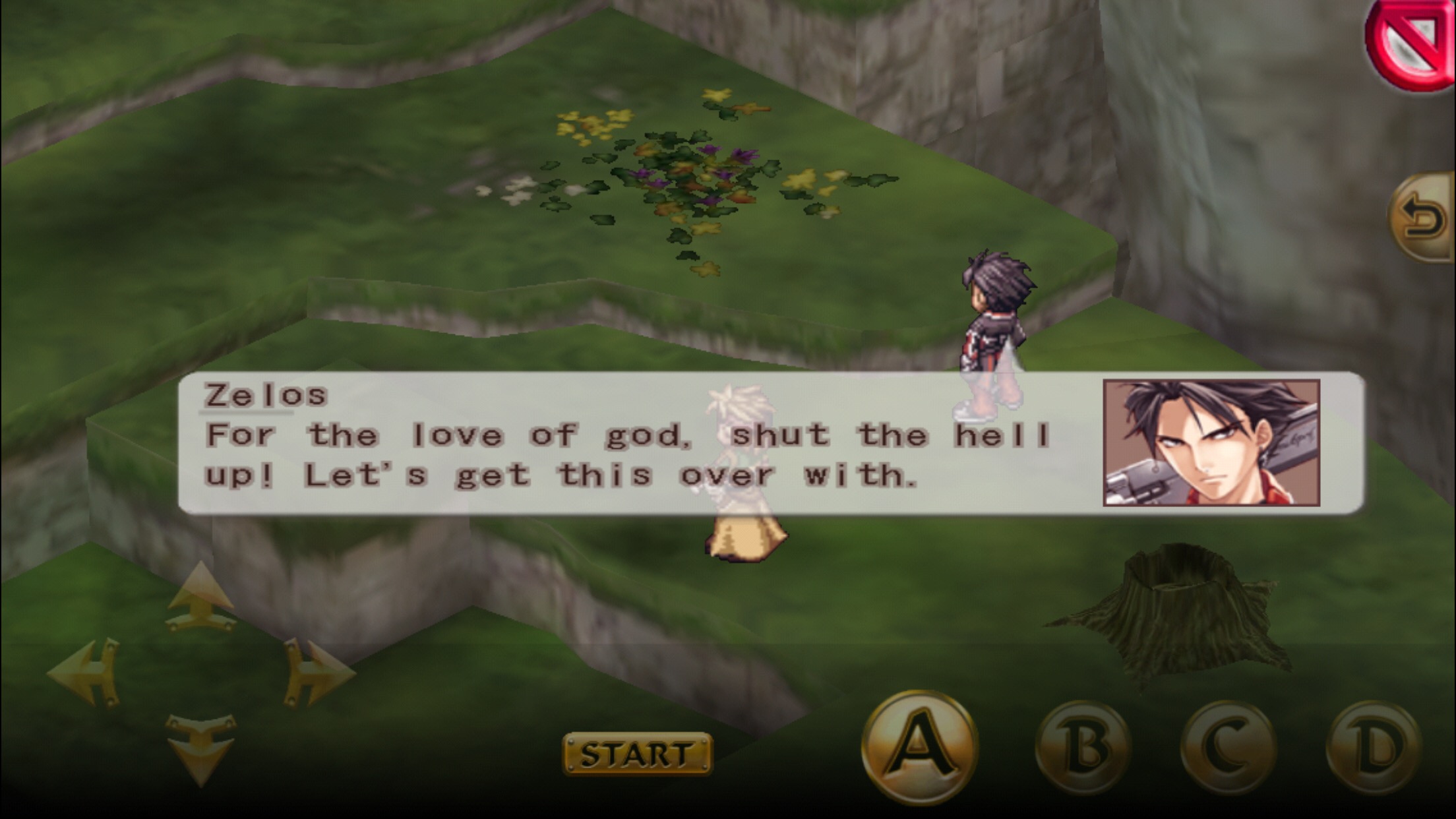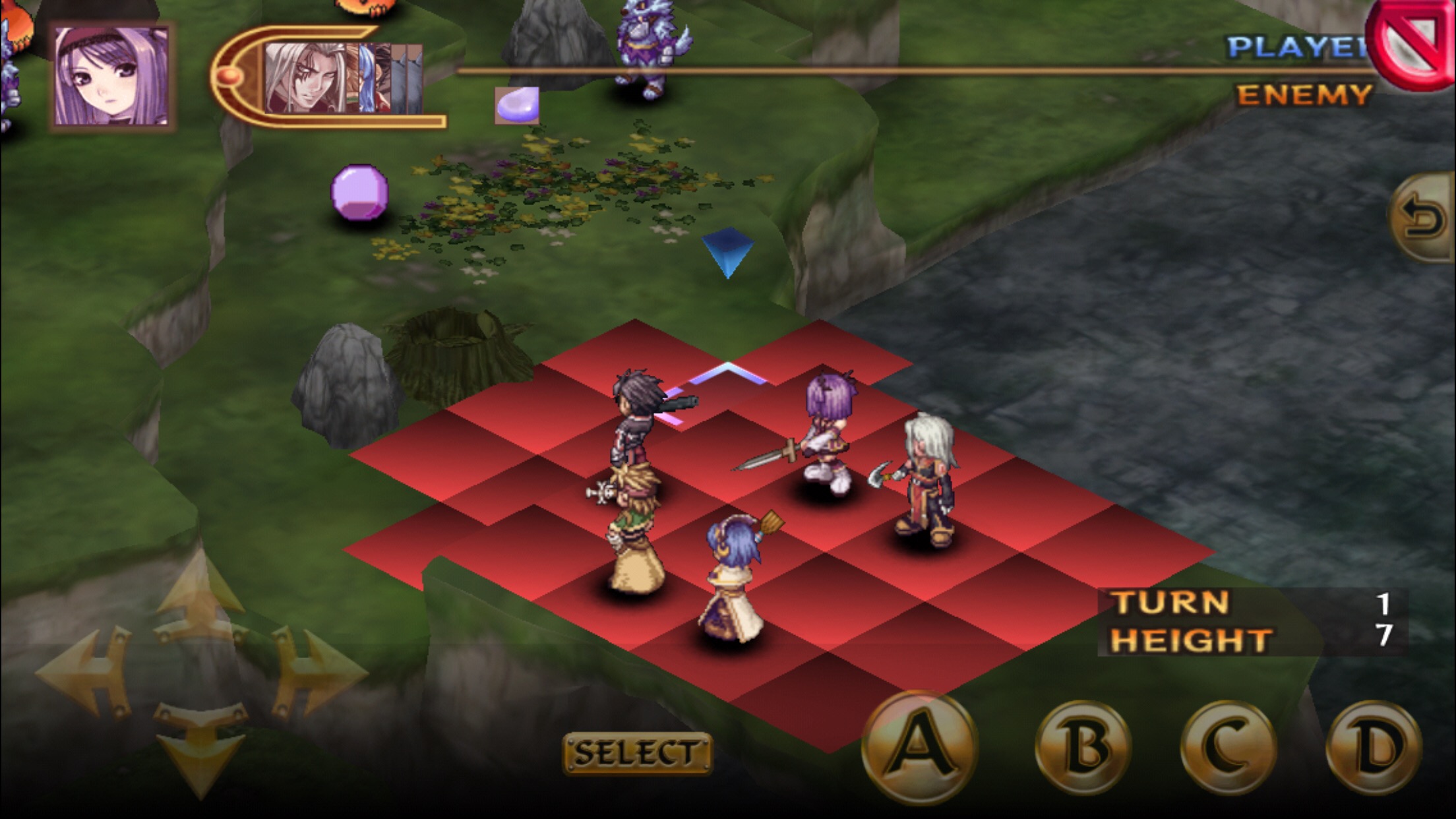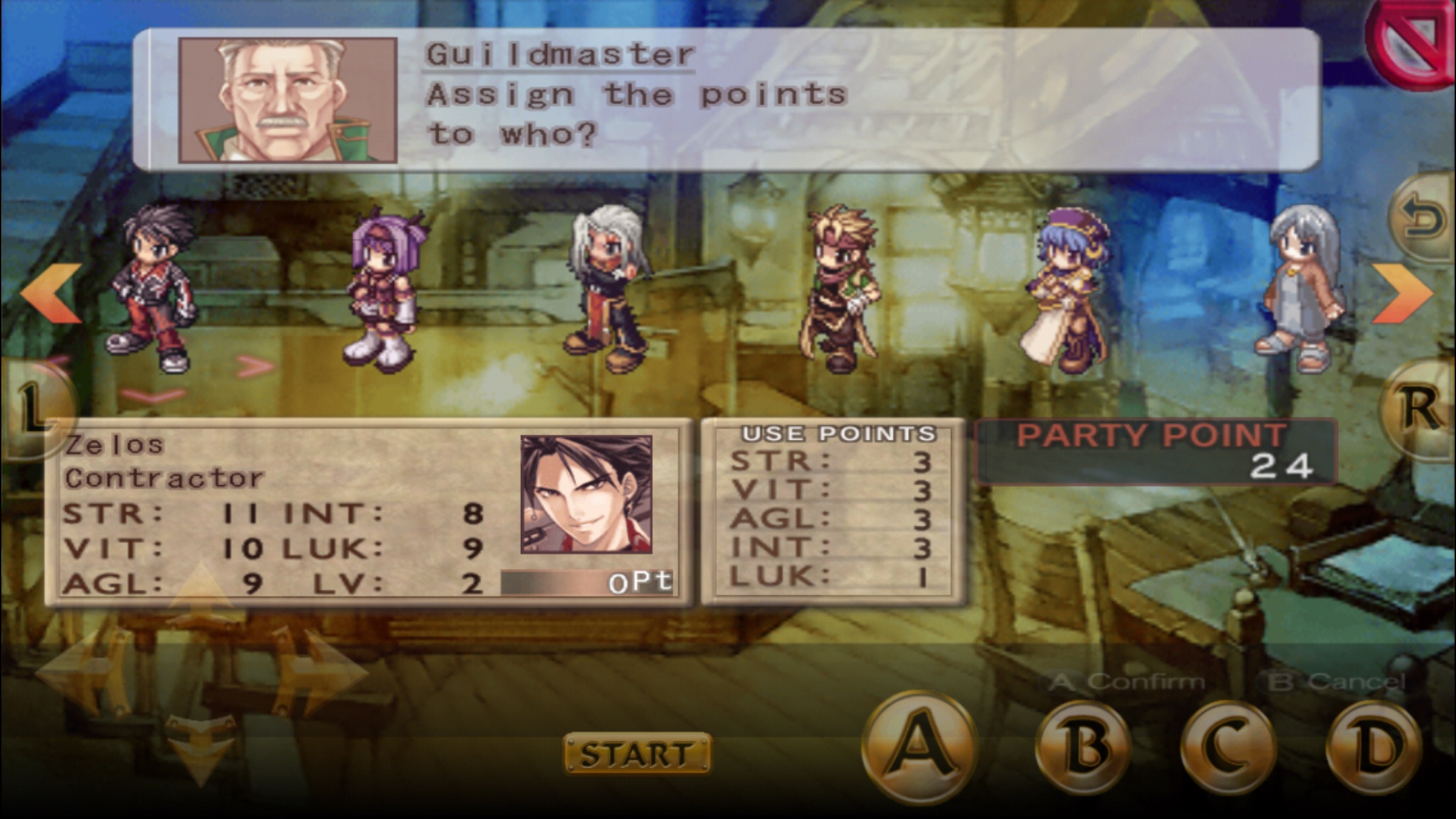 Hello, gentle readers, and welcome to the RPG Reload, the weekly feature where we use all of our work points searching for where to go next. Each installment, we take a look at an RPG from the App Store’s past to see how it holds up in the present day. It’s a chance to revisit old favorites, reflect on their place in the overall scheme of things, or simply to take a deeper dive than our reviews typically allow for. I try to present a balanced diet of delicious RPGs as we go along, but if you think I’m missing something important, please let me know. You can do that by commenting below, posting in the Official RPG Reload Club thread in the forums, or by tweeting me at @RPGReload. Since the schedule is drawn up well in advance, you might not see your suggestion soon, but it will be added to the master list.
Hello, gentle readers, and welcome to the RPG Reload, the weekly feature where we use all of our work points searching for where to go next. Each installment, we take a look at an RPG from the App Store’s past to see how it holds up in the present day. It’s a chance to revisit old favorites, reflect on their place in the overall scheme of things, or simply to take a deeper dive than our reviews typically allow for. I try to present a balanced diet of delicious RPGs as we go along, but if you think I’m missing something important, please let me know. You can do that by commenting below, posting in the Official RPG Reload Club thread in the forums, or by tweeting me at @RPGReload. Since the schedule is drawn up well in advance, you might not see your suggestion soon, but it will be added to the master list.
Back in RPG Reload File 056, we took a look at Spectral Souls ($4.99), one of the first English releases from the prolific Japanese developer/publisher Idea Factory. After breaking away from Data East and forming their own company, the Idea Factory people spent many of their early years developing a series of RPGs that took place in a setting called Neverland. These days, they’re most well-known for co-developing the popular Neptunia series of JRPGs. While opinions are mixed on their output, one thing that can’t be denied about Idea Factory is that in their 20 years of existence, they have survived and thrived through some tough times for the traditional Japanese game industry on the whole. They’ve outlived their “mother" Data East, and their “older brother" Technos Japan. With Neptunia‘s strong cult following, Idea Factory will probably continue to hang in there for the foreseeable future.
Things likely didn’t seem quite so secure for the company back in 2006. Idea Factory had been surviving by cranking out games at an absurd pace, primarily on the PlayStation 1 and PlayStation 2. With low budgets and quick turnarounds, the games didn’t have to sell particularly well to keep the lights on. That’s a good thing, because by and large, Idea Factory’s games were modest sellers. But with the PlayStation 2 on its last legs, the Wii market looking a bit volatile for RPGs, and the more powerful PlayStation 3 and Xbox 360 requiring significantly more development resources, it wasn’t clear if a company like Idea Factory could keep doing business the way they had. The company moved forward somewhat gingerly, opting to throw a few ports out across some of the newer platforms to see what would happen.
One boon for the company was that Microsoft was aggressively pursuing the Japanese market in the beginning of the Xbox 360’s life. They offered strong incentives to Japanese publishers to bring titles to the new system that would appeal to the domestic audience. Idea Factory used that opportunity to bring a handful of PlayStation 2 ports to the new hardware, a process which almost certainly subsidized some of the development costs for future efforts on the more advanced hardware of that generation. Among those titles were an installment in the popular Neverland Spectral Force series and an enhanced port of a game they had just released the year before on PlayStation 2, Blazing Souls. The Xbox 360 version, titled Absolute: Blazing Infinity, did about as well as any niche RPG did on the Xbox in Japan, and it never saw a worldwide release.
With the Xbox experiment not yielding terribly positive results, Idea Factory switched their focus to more popular systems among Japanese gamers. Specifically, they went in hard on Sony’s handheld PlayStation Portable, where they had already had some success with releases from the Neverland series. In the end, most of their PSP output came in the form of visual novels for young women, but they also dropped a handful of ports and new games with their familiar RPG brands attached. It was on PSP where Blazing Souls would get its third chance. In 2009, Idea Factory released a PlayStation Portable version of the game called Blazing Souls Accelate ($4.99). As in the case of its predecessor, Spectral Souls, Blazing Souls was released outside of Japan, though this time by Aksys Games rather than NIS America.
Oddly, that’s how the Neverland series went out. While it had served Idea Factory well for nearly 15 years, the company was moving onto bigger things. The Agarest War games had done well for them on home consoles, and only a year after the North American release of Blazing Souls, Hyperdimension Neptunia would come out on PlayStation 3, giving Idea Factory a new, more profitable direction to pursue. But the series still had a little bit more left in it, thanks to a company named Hyper Dev Box. In June of 2012, they released an improved port of the PSP Spectral Souls on iOS. It must have done well for them, because they followed it up less than a year later on March 1, 2013 with an iOS port of Blazing Souls Accelate. Since then, they’ve released mobile ports of Record of Agarest War ($5.99) and Record of Agarest War Zero ($5.99), and they’re currently working on a mobile version of Record of Agarest War 2.
Blazing Souls Accelate presented a slightly different problem from Spectral Souls. The latter had been slammed by critics and players for its terrible load times and other technical issues. Hyper Dev Box managed to address most of those problems, and what was left was a decent strategy RPG that perhaps ran a little too long and deep for its own good. By contrast, Blazing Souls Accelate didn’t suffer from as many technical issues, but it fared even worse with critics than its predecessor did. Blazing Souls, for the most part, shares a lot of the strengths and weaknesses of the previous game’s design. It’s a little too long, a little too complicated, and the pacing is really uneven. If you take the time to learn its poorly-explained systems, there’s a perfectly enjoyable SRPG buried in there somewhere.
But Blazing Souls makes a few crucial changes in the overall structure of the game, and one of them manages to nearly break the game all on its own. Unlike most SRPGs, you won’t necessarily open up the next stage by clearing the one before it. Often, you’ll have to successfully search for it first. You do that by sending some of your team members to a location on the map to see if they turn anything up. Whether they find something or not depends on two things. First, whether something is actually there to be found or not, and second, whether your characters pass the stat check to find it. Success or fail, each search costs work points to carry out. You’ll earn some work points by clearing story missions, but if those happen to run dry, your only choice is to grind them out by pulling off 50-chain combos in battle, or by clearing any available challenges you might have open.
You’re not left entirely in the dark, mind you. If you pay careful attention, there are hints about where certain locations can be found. But a few mistakes here and there will have you either grinding or restarting, and neither of those things make for much fun. The game is obtuse in other ways, too. You’re able to explore certain battlefields freely and use actions to interact with parts of the map. One of those actions allows you to destroy objects, but certain objects can’t be destroyed with that action. Instead, you have to instigate a battle, make your way over to the object, and bash it before killing all of the enemies. Again, the game mentions this during the frequent, heavy information dumps at the beginning of the game, but I’d forgive anyone for not catching on.
The best ways to mitigate these problems is to save before doing anything involving work points, or use an FAQ. I mean, if you want to get the True Ending, you were going to need an FAQ anyway. If you do that, if you use an FAQ that tells you where every location is, sparing you from the heartbreak of running out of WP, you can have just as much fun here as you could in Spectral Souls. In short, the game is an absolute nightmare if you play it straight, and somewhat enjoyable if you cheat. Frankly, that’s just poor design, and Idea Factory should have known better by this point in their history. Unfortunately for Hyper Dev Box, mucking around with gameplay systems is less likely to get approval from the licensee than fixing technical issues. There have been some adjustments to the gameplay balance, but what the game really needs is to ditch the work points system entirely. I suspect that change was beyond what they were allowed or able to do.
Once you’ve made up your mind to cheat or scum your way through, you’ll find a very similar experience to Spectral Souls. The battles focus heavily on chaining attacks across multiple characters, there’s a deep crafting/synthesis system to dig into, you get quite a bit of control over how your characters grow, and it’s certainly a lengthy game. I didn’t find the story to be as interesting as the one in Spectral Souls, and even that one wasn’t particularly much to write home about. The big problem here is that the main character, Zelos, is an absolute jerk. Like, he makes Squall Lionheart look like Ned Flanders. He spends literally tens of hours of gameplay being a total ass to everyone, completely unprovoked. The only way you can pull that off is by having the bad guy be an even bigger jerk. Well, they gave it a try here, but no, I still hate Zelos more. The other side is trying to wipe out the entire human race and replace it with clones, and I still hate Zelos more than them. I hope you lose, Zelos!
Hyper Dev Box did a pretty good job of porting the game and supporting it, at least. Over the years, they’ve added support for a number of different controllers, which is a good thing as the virtual controls which you’re required to use otherwise are kind of a pain to use. They’ve also done a few updates to fix the game when new iOS versions or new hardware types have caused problems. I wish they would find a way to make iCloud saves work with these games, as they all run north of 1 GB in memory size and are extremely lengthy adventures. One issue I had with Blazing Souls on modern hardware is that the text is quite blurry and obviously meant for a lower resolution screen. It’s still legible, but if feels like you’re reading everything without your glasses on.
As I said earlier, there’s a decent game in here somewhere. The chain system in battles is quite compelling once you get the hang of it, there are tons of playable characters, and you get a lot of game for your money, if nothing else. But a few bad design decisions mean that if you’re going to do this game, you’re better off parking beside an FAQ, which really isn’t a fun way to experience a game. Strangely, Blazing Souls is actually better on a replay, because you’ll probably remember where new areas can be found and will be less likely to waste valuable WP. Still, even with some ideas that work well, this is easily the worst of the Idea Factory games that Hyper Dev Box has ported to mobile. I’m not sure I’d recommend this one unless you’ve really exhausted all other options.
That’s just my take on Blazing Souls Accelate, though. What do you all think? You can let me know by commenting below, posting in the Official RPG Reload Club thread, or by tweeting me at @RPGReload. As for me, I should be back next week with another developer interview. If there’s a scheduling problem, you might see another game here instead. The magic of the modern age! Anyway, thanks as always for reading!
Next Week’s Reload: Another Developer Interview!



